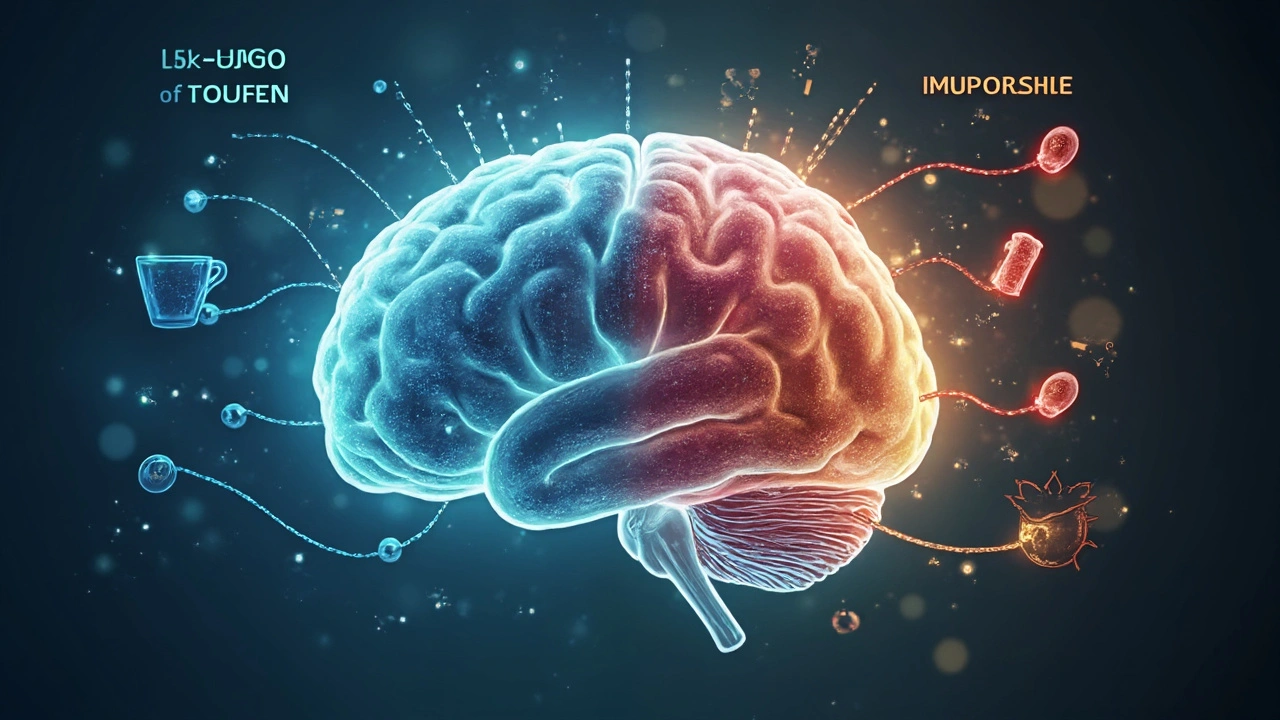Brain Mechanism — How Medicines, Illnesses and Supplements Change the Brain
Your brain is the control center for everything you feel, think, and do. Every drug you take, every illness you have, and even some supplements can nudge the brain’s wiring, chemicals, and rhythms. That matters because small changes can make big differences in mood, memory, pain, and behaviour.
Want a quick example? Antidepressants like Lexapro change serotonin signaling to lift mood. Migraine drugs such as flunarizine target blood flow and nerve excitability to stop attacks. Even blood thinners and antibiotics can indirectly affect brain function through interactions and side effects. Knowing the mechanism helps you spot benefits and risks faster.
How medicines change brain signals
Drugs work by altering how nerves talk to each other. Some boost a chemical messenger (neurotransmitter), others block receptors, and some calm overactive pathways. For example, SSRIs like escitalopram (Lexapro) increase serotonin availability, which can reduce anxiety and depression over weeks. Anti-migraine meds can dampen over-excited pathways that trigger pain. These are different strategies but the same idea: change signaling to change outcomes.
Side effects come from the same actions. A pill that raises serotonin might also slow digestion or affect sleep. That’s why guides like our Lexapro article and the Flunarizine for Hemiplegic Migraines piece are useful — they explain both the intended brain effects and what to watch for day to day.
Common brain mechanisms in conditions and what to do
Some illnesses reshape brain function slowly. Chronic inflammation, autoimmune issues, or long-term pain can alter neural circuits and leave lasting effects. Psoriatic arthritis, for instance, links body inflammation to changes in pain processing and mood. Migraines reflect repeated bursts of brain hyperexcitability. Knowing this helps you choose treatments that target the right mechanism.
Practical tips: track symptoms, keep a medication list, and report mental changes to your clinician. If you start a new med, watch mood, sleep, memory, and coordination for the first weeks. Use reliable guides — like our posts on Lexapro, Flunarizine, and other meds — to understand expected effects and interactions.
Supplements can help but they can also interfere. Omega-3s and certain herbs affect neurotransmitters and inflammation. Always check for interactions with prescription meds. If a product promises quick brain changes, ask for clear evidence and talk to a pharmacist or doctor first.
Want to learn more specific links between medicines and brain mechanisms? Browse articles on this tag that explain real drugs, real side effects, and real recovery stories. That helps you make safer, smarter choices for your brain and daily life.
Still curious or worried about a drug you take? Reach out to a healthcare pro. Small changes in treatment, timing, or dose often fix the issues without giving up the benefit you need.
Curious about how paracetamol and ibuprofen really work in your brain? This in-depth guide compares their unique mechanisms in the central nervous system, explaining how each tackles pain differently. Get a closer look at the science behind everyday painkillers—no fluff, just facts. You’ll also discover tips, everyday scenarios, and research-backed insights that make it easier to choose the right analgesic for your needs. Dive deep into what actually happens inside your head when you pop these common meds.

